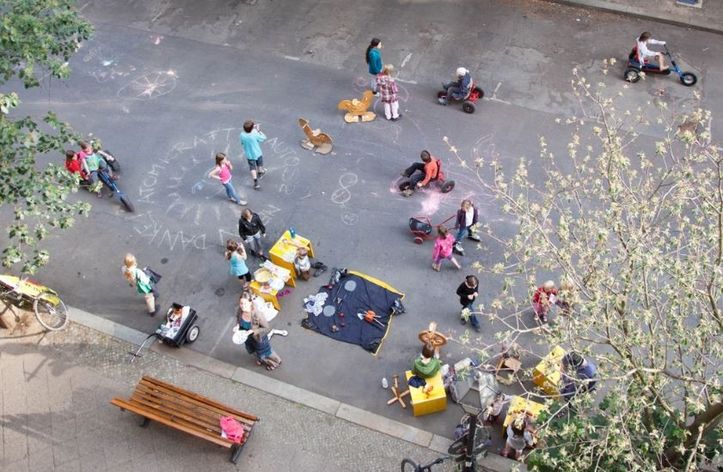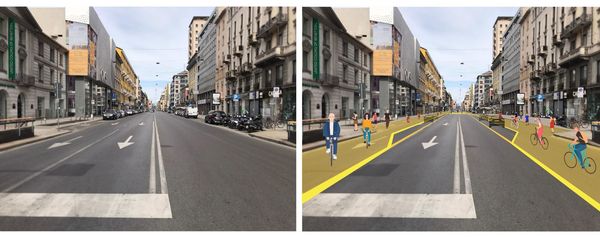Reflecting on the pandemic from the perspective of sustainable urban development (EUKN)
By Lea Scheurer, Senior Policy and Project Officer, and Lily Maxwell, Policy and Project Officer, at the European Urban Knowledge Network (EUKN)
We are living in a ‘pandemic society’. While large parts of the world are still living a life determined by infection numbers and containment measures, discussions about a “post-COVID” world have been around since the pandemic’s beginning. This article summarises some of the EUKN Secretariat’s reflections on urban development in the face of pandemics. Many of these reflections have also been published via the EUKN’s Urban Voices blog and the EUKN’s monthly newsletter, which you can sign up to here.
Urban Resilience
The COVID-19 outbreak is having far-reaching impacts for societies across the worldand raising questions about how we can best prepare for, cope with and transition beyond crisis situations, particularly in dense urban settings. What is the current pandemic teaching us about urban resilience as a lived reality across different cities? This crisis clearly poses huge challenges for national and local governments, but could it also be an accelerator for positive transitions?
Urban Design
There has been a lot of debate recently about the relationship between urban design and the pandemic. Does urban density exacerbate an epidemic? How do we design working and living spaces for lockdown and social distancing? How can public spaces be adapted to facilitate “distanced conviviality”? Ultimately, will COVID-19 cause long-term societal transitions and how will this, in turn, affect the design and architecture of our cities?

Local Economy
The period of lockdown-easing is well underway in Europe; countries have opened their borders and terraces across the continent are bustling with people drinking their first beers of the summer – albeit at a safe distance. With some lessons about Europe’s crisis response already learnt, the focus has now turned to ensuring a just, green recovery. The question of how we rebuild local economies to be more resilient to these kind of shocks is at the tip of everyone’s tongues.
Urban Mobility
The pandemic is presenting challenges in terms of how we move around urban spaces on an everyday basis. Some positive outcomes have arisen: greener and active forms of transport that facilitate social distancing – namely walking and cycling – have been taken up across the world’s cities and even integrated into long-term municipal plans. At the same time, though, we are seeing public wariness around using mass transport options and an increasing desire to travel in individual vehicles, like cars. Cuts and changes to national and municipal budgets as a result of the crisis-driven economic downturn are also having effects on transport plans and finances. Will this pandemic help to speed-up much-needed sustainable urban mobility transitions or compound existing social and environmental transport issues?

Tourism
The pandemic has shed a new light on the paradoxical nature of urban tourism, with some city centres experiencing relief and a local-led revival and others suffering as the tourist industry – and the city economy – is hit hard. Before the outbreak of the pandemic, many of Europe’s best-known cities had a love-hate relationship with tourism. Overrun with cruise ship tours and stag parties, the residents complained about deserted city centres and communities destroyed. At the same time, some cities are heavily reliant upon the tourist industry for economic stability. The question remains: will urban tourism ever be what it once was? And, more importantly, do we want it to be? If not, how do we move local economies in some cities away from their dependence on tourism?
Thinking Beyond the Crisis
Over the past 18 months, we’ve offered a platform for different urban stakeholders to “think beyond the crisis” and reflect on what the urban world can do to ensure a just, green and productive recovery in Europe’s cities. We ran a number of Policy Labs under the theme “Thinking Beyond the Crisis” with our members, all of them focused on specific elements of the urban pandemic response and recovery. We’ve also oriented many of our communication activities around this topic, from our new Urban Voices Blog, to our Cooperative City in Quarantine session with Eutropian, our Urban Thinkers Campus webinar on “COVID-19: A Catalyst for More Sustainable Urban Mobility?”, our Just City Session as part of the HH Peace & Justice Reception, and more. Check out our website for more information!
The EUKN is the only independent Member State driven network in the field of urban policy, research and practice. Its Secretariat is located at the Hague Humanity Hub. If you would like to engage in a discussion on COVID-19 insights from an urban perspective, or simply want to know more about our work, please send an email to info@eukn.eu.


